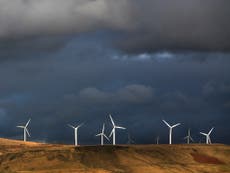Onshore wind is the best value eco-friendly energy option, so why would the Conservatives rein it in?
The strong political consensus around the 2013 Energy Act suggests political parties share a broad understanding of how to tackle energy questions
One change the energy sector is sure of is a new Secretary of State. In the previous Government the Cabinet role was filled by a Liberal Democrat - now there will be an all Conservative team at the Department. However, this should not necessarily entail huge changes in policy.
Energy is a complicated arena dominated by some basic questions on cost, security of supply, import dependency, and the decarbonisation agenda. The strong political consensus around the 2013 Energy Act - which included a budget for financial support for low carbon technologies up to 2020 - suggests political parties share a broad understanding of how to tackle these questions, and indicates that the Government will recognise the importance of low carbon energy investment, and its benefits.
The question then becomes whether certain technologies are favoured. One allocation of contracts has already taken place under an auction system, designed to ensure that those projects representing best value for money get contracts. It would seem logical to continue this approach.
There have been question marks raised specifically over the future of onshore wind under a Conservative Government. However, as it is currently the lowest-cost low carbon option, it is difficult to reconcile an early curtailment of its role with achieving best value for the consumer.
The industry hopes to be able to work with Government on reducing costs further still to the point where it becomes the lowest cost option of all electricity by the end of the Parliament.
This Government also needs a view on the electricity mix beyond 2020. For continuing investment in low carbon power, the sectors involved need an indication of their role in the 2020s.
The Energy Act allows for the setting of a 2030 decarbonisation target in 2016, and to see continuing job growth, less dependency on imported fossil fuels for our electricity, and a cleaner power system. We shall need to see this enacted.
But while the sector hopes to see continuity in policy, at this stage much remains uncertain.
The writer is chief executive of Renewable UK


Join our commenting forum
Join thought-provoking conversations, follow other Independent readers and see their replies